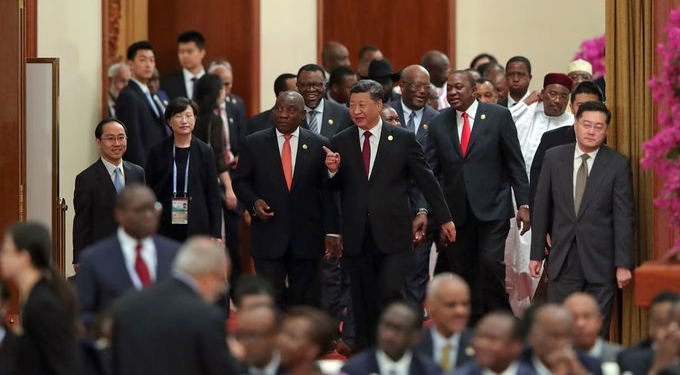China’s top diplomat has commenced his annual New Year tour of Africa, continuing a 35-year tradition to solidify Beijing’s influence across the resource-rich continent as Western engagement faces challenges.
Foreign Minister, Wang Yi’s itinerary includes visits to Namibia, the Republic of Congo, Chad, and Nigeria, underscoring China’s consistent commitment to Africa amid geopolitical shifts. Analysts note that while Europe’s focus is consumed by domestic politics, the war in Ukraine, and Middle East tensions, and the U.S. awaits the return of President-elect Donald Trump to the White House, China’s steady engagement offers a stark contrast.
Wang’s visit, which runs through Saturday, reflects Beijing’s efforts to strengthen financial support for Africa, secure critical mineral deals, and expand markets for its exports, including electric vehicles and solar panels. These moves come as China’s slowing economy drives its state-owned infrastructure firms to seek projects abroad, with Africa providing key opportunities.

“The choice of African nations for these visits may not follow a fixed pattern,” said Eric Orlander, co-founder of the China-Global South Project. “However, it sends a strong message of China’s unwavering dedication to the continent, especially compared to the sporadic approaches of the U.S., U.K., and EU.”
Chinese foreign ministry spokesperson, Mao Ning announced the tour, emphasizing its aim to deepen practical cooperation and drive sustained growth in China-Africa relations.
Africa also holds strategic value for China at the United Nations, with its bloc of over 50 votes potentially supporting Beijing’s efforts to reshape multilateral institutions and global norms, particularly on issues like human rights.
While U.S. President Joe Biden made just one visit to sub-Saharan Africa during his presidency, China has consistently prioritized Africa in its diplomatic calendar. “China has become central to Africa’s development narrative, serving both as a partner and a model,” said Hannah Ryder, founder of Development Reimagined, an African-owned consultancy. She pointed out that African Union Commission candidates often highlight China’s contributions to manufacturing and mass education as examples to emulate.
Wang’s visit to the Republic of Congo, the new co-chair of the Forum on China-Africa Cooperation (FOCAC), underscores China’s commitment to implementing the outcomes of last year’s summit, where Beijing pledged $51 billion in fresh financial assistance.

China is also increasing its involvement in regional security issues, which partly explains the inclusion of Chad on Wang’s tour. Following France’s recent military withdrawal from Chad after the abrupt termination of a defense cooperation pact, China has positioned itself as a reliable partner for the new military governments in the Sahel and West Africa.
“China’s presence is seen as stable and reliable by African nations, even as it sparks controversy among Western powers like France and the U.S., who view it as a dilution of their influence,” Orlander explained.
By prioritizing Africa on its diplomatic agenda, Beijing continues to reinforce its role as a key partner in the continent’s development and a significant player in global geopolitics.









